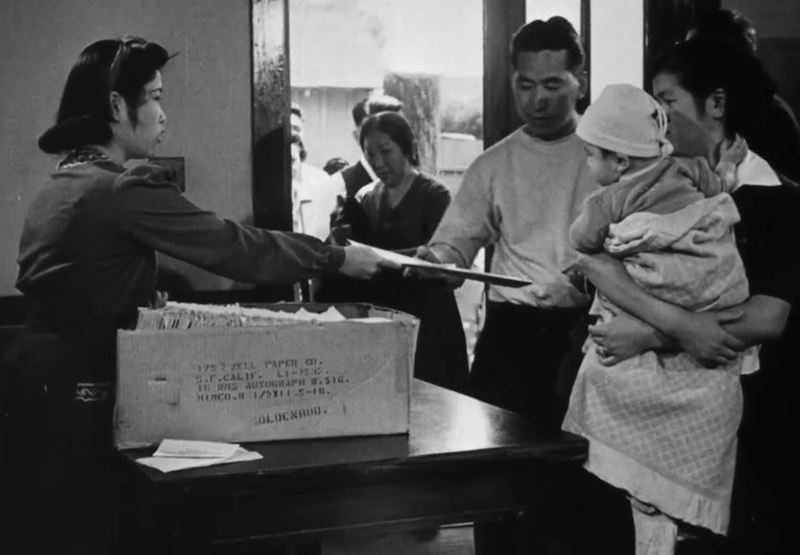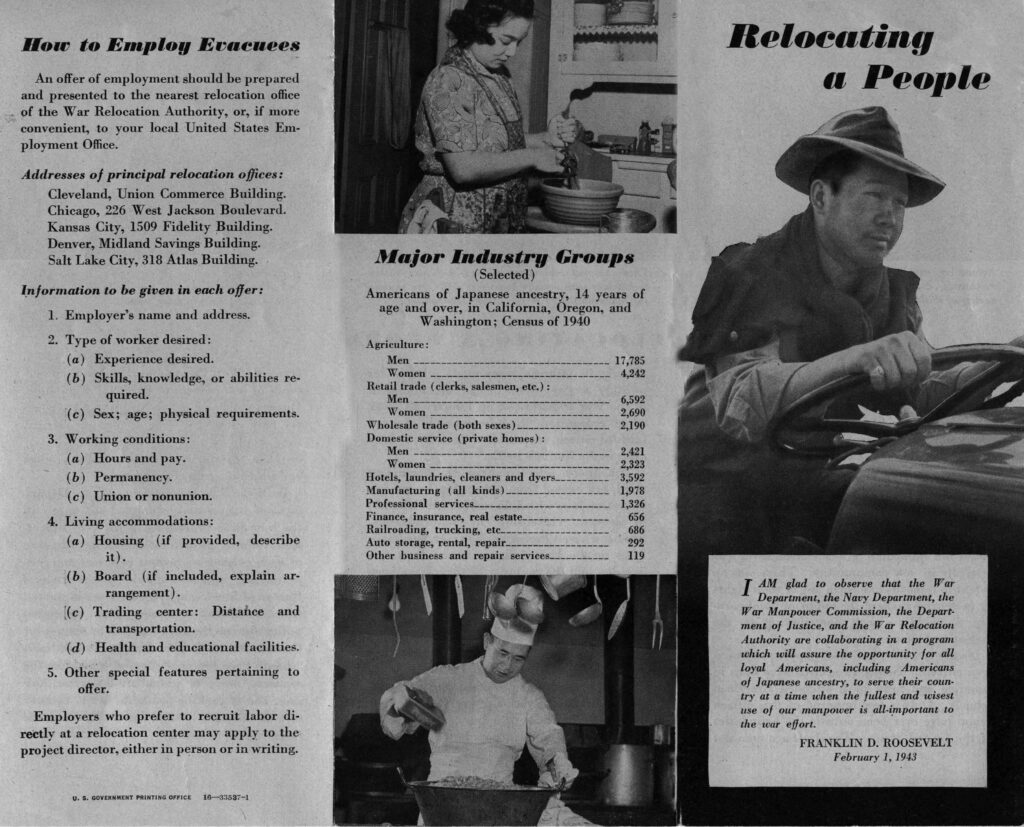Japanese Interments, WWII

Courtesy of Library of Congress, Manzanar War Relocation Center photographs, LC-A351-3-M-28
In 1942, a Presidential Executive Order, justified in the name of national defense, forced 120,000 people of Japanese ancestry living in areas bordering the Pacific coast and Hawai’i into relocation and detention centers until late 1945. The majority of the detainees were American citizens, and over half were children. As a result of internment, Japanese Americans lost homes, business and their communities.
Although the camps met international laws, conditions were basic. Tar-covered barracks where people lived lacked plumbing or cooking facilities; food was served in mess halls. Medical care was barely adequate, and many internees experienced long-term psychological stress and an increased risk of cardiovascular disease.
The War Relocation Authority sought to encourage evacuees and residents of relocation camps who passed background checks to work in private industry or agriculture; this brochure was meant to attract potential employers. According to a related WRA publication, “the primary purpose of this program is to restore as many of the evacuees as possible to productive life in normal American communities.”

Courtesy of National Archives and Records Administration. From Office of War Information. Distributed by the War Activities Committee of the Motion Picture Industry, 1942-1945.
This film, dated 1942, is from the Office War Information. “Milton S. Eisenhower explains the need for, and methods of, moving Japanese-Americans from the West Coast. Nisei families register with the War Relocation Authority which helps them sell or rent their homes, businesses, and farms. The Nisei are temporarily quartered at the Santa Anita Race Track and then moved to a midwest relocation center. Shows
In 1983, the Commission on Wartime Relocation and Internment of Civilians, appointed by President Jimmy Carter, reported that this unprecedented government action was “motivated by racial prejudice, wartime hysteria, and a failure of political leadership.” The report was the catalyst for an apology to Japanese Americans by President George H.W. Bush, and redress payments of $20,000 to each of the survivors.
Internment objector Fred Korematsu was awarded the Presidential Medal of Freedom in 1998 by President William J. Clinton. President Clinton stated, “In the long history of our country’s constant search for justice, some names of ordinary citizens stand for millions of souls. Plessy, Brown, Parks … to that distinguished list, today we add the name of Fred Korematsu.”

